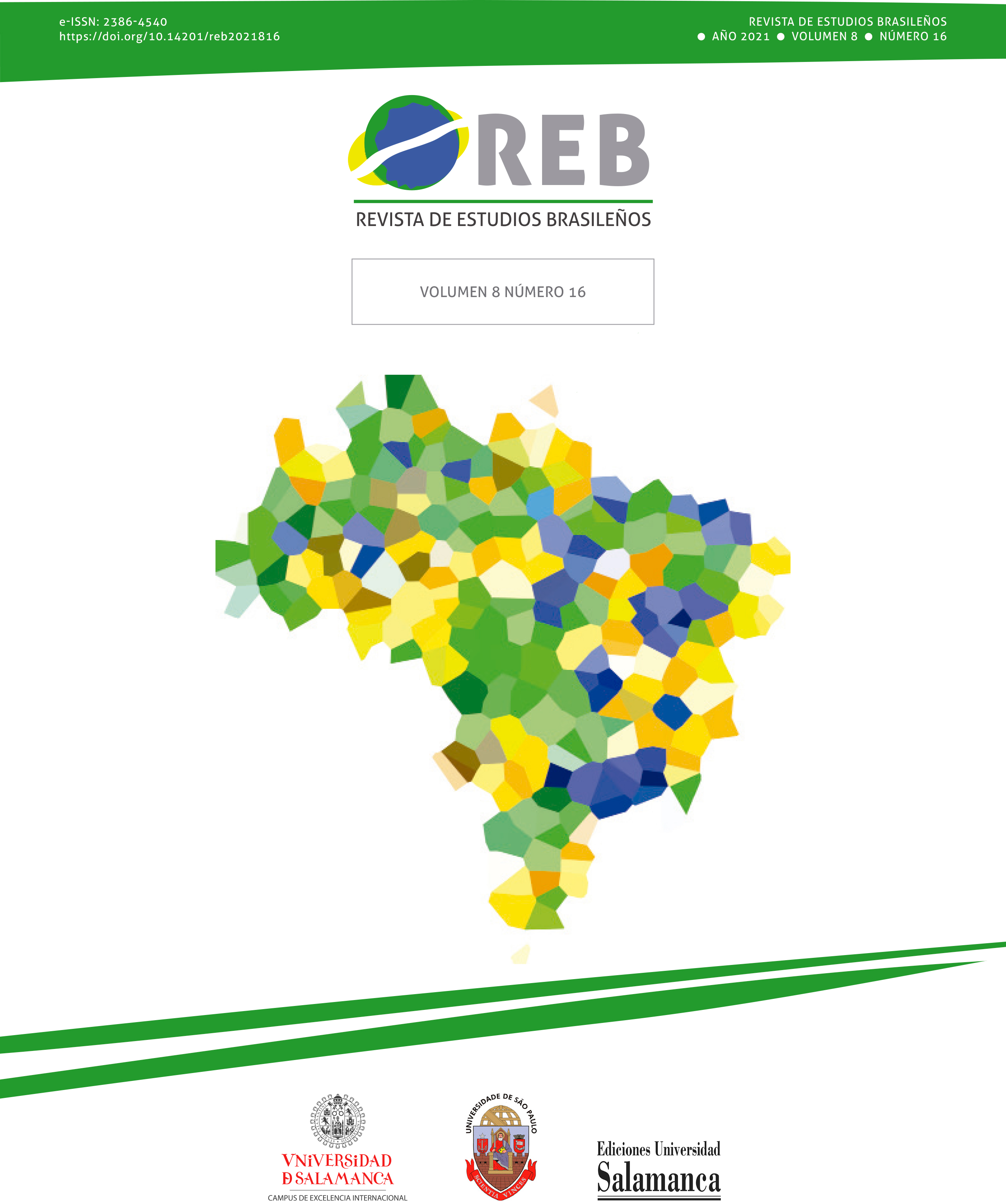Reciprocity bonds: systems of alliances between some of the principals of a Minas Gerais region (1726-1784)
DOI:
https://doi.org/10.14201/reb20218163554Keywords:
Social networks, afluente, comarca do Rio das VelhasAbstract
To portray chains of solidarity made up by some figures with a marked degree of interference in the political and social life of the Rio das Velhas District is the purpose of this article, in the interregnum from 1726 to 1784. In pursuit of this objective, a diverse range of testimonies will be recruited, aiming at the composition of a mosaic in which the social fabric can be analyzed. When there is an aphonia of a source, or even sparse information, the use of others that can fill the open gaps will be used. The preview of the social life of the region emanating from sources of the Overseas Historical Archive, parish documents, ecclesiastical judgment, among others, will be the path to be followed in the desired reconstruction. In dealing with the documentation highlighted above, it is worth pointing out the methodological roadmap to be followed, that is, looking at the movement that impels social groups to continually reinvent themselves day after day, dynamically adjusting to new ways of living or solutions to change, which shape relational aspects between them. In all fields, improvisation won the norm and habits.
Downloads
References
Almeida, C. M. C. (2001). Homens ricos, homens bons: produção e hierarquização social em Minas Colonial (1750-1822). Tese de doutorado, Universidade Federal Fluminense, Niterói, RJ, Brasil.
Antonil, A. J. (1982). Cultura e opulência no Brasil por suas drogas e minas. Belo Horizonte: Itatiaia.
Antunes, C. (2012). A história da análise de redes e a análise de redes em história. Revista da FLUP Porto, IV Série, vol. 2, pp. 11-22. Recuperado em: [https://ler.letras.up.pt/uploads/ficheiros/11313.pdf].
Brügger, S. M (2004). Minas patriarcal - família e sociedade (São João del Rei, séculos XVIII e XIX). Tese de doutorado, Universidade Federal Fluminense, Niterói, RJ, Brasil.
Costa, I. N. & Luna, F. V (1982). Devassa nas Minas Gerais: observações sobre casos de concubinato. Anais do Museu Paulista, tomo XXI, pp. 221-233.
Diniz, S. G (1965). Pesquisando a história de Pitangui. Belo Horizonte: Edição do autor.
Elias, N. (1996). O processo civilizador. Rio de Janeiro: Jorge Zahar.
Figueiredo, L. R. A (1993). O avesso da memória: cotidiano e trabalho da mulher em Minas Gerais no século XVIII. Rio de Janeiro: EDUNB/José Olympio.
Fragoso, J. (Org.) (2006). O Antigo Regime nos trópicos: a dinâmica imperial portuguesa. Rio de Janeiro: Civilização Brasileira.
Furtado, J. F (1999). Homens de negócio: a interiorização da metrópole e do comércio nas Minas setecentistas. São Paulo: Hucitec.
Grunzinsky, S. (2001). Pensamento mestiço. São Paulo: Cia das Letras.
Hespanha, A. M & Xavier, A. (1993). As redes clientelares. História de Portugal: o Antigo Regime. Lisboa: Estampa.
Levy, G. & Burke (Org.). (1996) Sobre a micro-história. A escrita da História: novas perspectivas. São Paulo: Editora da UNESP.
Lima Júnior, A. (1962). As primeiras vilas do ouro. Belo Horizonte: Estabelecimentos Gráficos Santa Maria.
Oliveira, H. C. (1999). Minho gerais: dinâmicas familiares e alianças políticas dos minhotos na comarca do Rio das Velhas (1726-1800). Tese de doutorado, Universidade Federal Fluminense, Niterói, RJ, Brasil.
Paiva, E. F. (2001). Escravidão e universo cultural na Colônia: Minas Gerais (1716- 1789). Belo Horizonte: Editora da UFMG.
Downloads
Published
Issue
Section
License
Copyright (c) 2021 Hilton César de Oliveira

This work is licensed under a Creative Commons Attribution-NonCommercial-NoDerivatives 4.0 International License.


